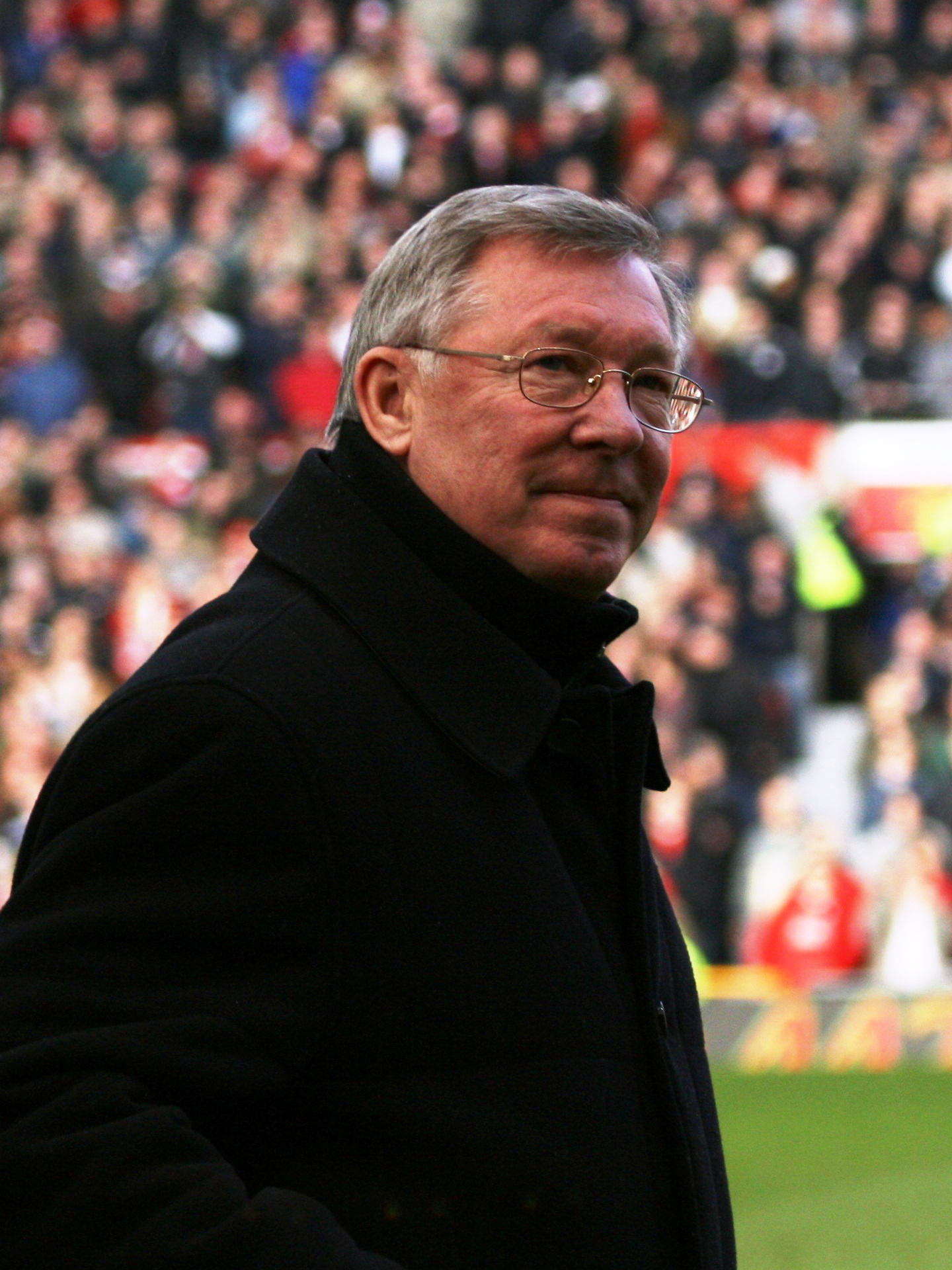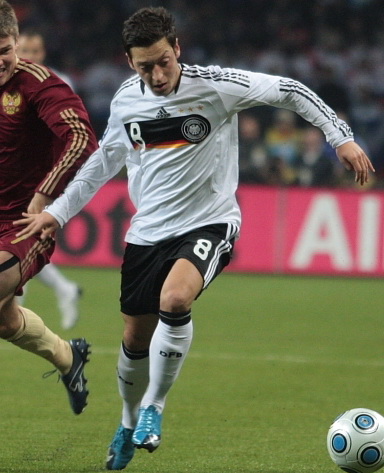 |
| Sir Alex Ferguson has Manchester United primed for another run in the Champions League. |
Last campaign saw Manchester United relinquish the EPL title to Chelsea after three consecutive league championships. In an effort to bring youth to the team and regain the title, United signed young defender Chris Smalling from Fulham, 20-year old forward Bebé from Vitória de Guimarães, and Mexican international forward Javier Hernández from Chivas. Adding these three promising young players to a squad that already contained some of the best players in the world makes United even more dangerous this season. With no major departures, United has the roster to compete and potentially win multiple competitions.
Unlike many of the teams already previewed, United has not stumbled out of the gate in their domestic league. Through 3 weeks, the Red Devils are 2-1-0, with 3-0 wins over Newcastle United and West Ham wrapped around a 2-2 draw with Fulham. I expect the group stage to go similarly well for United. No team in Group C can hang with United. With players like Wayne Rooney, Dimitar Berbatov (who is in fine form this season), Edwin Van Der Saar and Rio Ferdinand, United clearly have both the talent and star power to easily win this group.
Valencia CF - Valencia are making their first appearance in the Champions League group stage since 2007-2008. That season, Valencia finished last in their group, behind Chelsea, Schalke and Norwegian club, Rosenborg. If Valencia are going to have better luck this season, they will have to do so without the services of their two most influential players from last campaign. Prolific striker, David Villa, has left for Barcelona, while Spanish international winger, David Silva couldn't resist the lure of Manchester City's spending spree.
The departure of two such important figures leaves Valencia with one massive question to answer: where will the goals come from? In his time with Valencia, David Villa scored 129 goals in 212 total appearances. Looking at their rosters, I don't see a player on the club who can even come close to matching the scoring prowess or sheer genius of David Villa. They will also need to replace the pace, vision and (in 2009-2010) scoring of David Silva on the wing. He scored 10 goals last season (in all competitions), good enough for 2nd on the team. Valencia responded to the loss of Villa and Silva by signing Roberto Soldado, who scored 20 goals in all competitions for Getafe last season, and Aritz Aduriz, who led RCD Mallorca with 12 goals. While both signings were shrewd maneuvers, neither will truly replace Villa. Valencia are also going to need big seasons from Juan Mata and Éver Banega to help soften the blow of losing your top two scorers. Thus far, Valencia have played 1 game in La Liga, notching a 3-1 victory over Málaga.
Despite the departures of Villa and Silva, Valencia does have a talented team. While they will clearly not push Manchester United, 2nd place isn't out of the question.
Rangers F.C. - Another of the well-known teams in this group, though a team that is increasingly resting on its former international glory to carry its name. The Scottish Premier League is one of the most top-heavy leagues in the world, with Rangers and Glasgow rivals Celtic F.C. accounting for every title since the SPL came into existence in 1998-1999. As a result, the Scottish champions (an runners-up) do not play enough top-level soccer to truly compete, on a yearly basis, at the international level. Every year lately, it seems that the Scottish Premier League places one team in the group stage of the Champions League, only to see that team finish 3rd or last in their respective group. Not since 2006-2007, when Celtic finished 2nd in their group, has a Scottish team advanced to the knockout rounds. Last season, Rangers were the Scottish champions and finished last in their group, with a 0-2-4 record and a -9 goal differential.
Rangers come into this season having won the last two SPL titles and looking to prove something following their rather meek performance in last season's Champions League. To that end, Rangers have imported attacking power from Austria and the EPL. Joining the Gers are: James Beattie from Stoke City, Nikica Jelavić from Rapid Vienna, and Vladimír Weiss on loan from Manchester City. As one would expect, Rangers are off to a flying start, having won each of their first 3 games.
Rangers are clearly the class of the SPL (along with Celtic) and will likely have a spot in the Champions League for as long as the current format remains in place. Beyond gaining this place each season, it will take a major step up in competition, domestically, for Rangers to compete consistently. Perhaps this team has enough attacking talent to make a push for 2nd, but Rangers will have to steal points from Valencia to do so. A repeat of last season's performance could be on tap.
Bursaspor - Another team that I knew little about prior to my writing this preview. As with Hapoel in Group B, Bursaspor hails from a league on the geographic fringes of Europe. While the Turkish league has a history of placing competitive teams in the Champions League (usually in the form of Beşiktaş, Fenerbahçe, or Galatasaray) this will be Bursaspor's first appearance. As a matter of fact, Bursaspor are the first team outside the "Big Four" (the aforementioned three teams from Istanbul, and Trabzonspor) to win the Turkish title.
Bursaspor's team consists of mainly Turkish players, with several Argentinians, and a smattering of players from across Eastern Europe. Bursaspor's best known player (at least to Americans) might be Sercan Yıldırım, who made a 2nd half appearance in a friendly against the U.S. just before the World Cup.
The most successful season for a Turkish team in the Champions League was in 2007-2008 when Fenerbahçe made an unlikely run to the quarterfinals, eventually falling to Chelsea. I don't see Bursaspor making a similar run, though I believe they will surprise people (maybe even Valencia) and could secure a sport in the Europa League at Rangers' expense.
Prediction: Manchester United win this group with ease, potentially nabbing all 18 points if they play their first choice squad throughout the group stage. Valencia finish second, but not as easily as most might expect.
If you agree/disagree with any of my thoughts or predictions, leave a comment.







